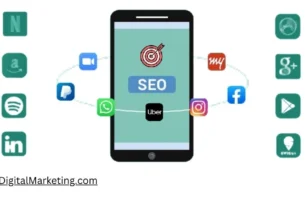Affiliate marketing is a performance-based marketing strategy where businesses reward affiliates (individuals or companies) for driving traffic or sales through their promotional efforts. Affiliates earn a commission for each sale, lead, or action generated through their unique affiliate links.
The concept is simple: companies leverage the affiliate’s audience to promote their products or services, creating a mutually beneficial relationship.
Table of Contents
How Does Affiliate Marketing Work?
The affiliate marketing process involves four key players:
- The Merchant (Advertiser): The company or individual selling a product or service. They create affiliate programs to encourage others to promote their offerings.
- The Affiliate (Publisher): A blogger, influencer, or website owner who promotes the merchant’s products in exchange for a commission.
- The Consumer: The person who clicks on the affiliate link and makes a purchase or completes a desired action.
- The Affiliate Network (optional): A third-party platform that connects merchants and affiliates, tracks affiliate links, and ensures accurate payouts.
Here’s a simplified breakdown: - The affiliate joins the merchant’s affiliate program.
- The affiliate promotes the merchant’s product using a unique affiliate link.
- A consumer clicks the link and completes a purchase or action.
- The merchant tracks the sale and pays the affiliate a commission.
Types of Affiliate Marketing Models
There are several ways affiliate marketing partnerships are structured:
- Pay-Per-Sale (PPS): The affiliate earns a commission for every sale made through their link.
- Pay-Per-Click (PPC): Affiliates get paid for every click on their affiliate link, regardless of whether a sale is made.
- Pay-Per-Lead (PPL): Affiliates earn when a visitor completes a specific action, like signing up for a newsletter or downloading an app.
Benefits of Affiliate Marketing
- Cost-Effective Marketing for Businesses: Companies only pay when a result is achieved, making affiliate marketing a low-risk strategy.
- Passive Income for Affiliates: Affiliates can earn money even while they sleep, as commissions roll in from completed sales or actions.
- Global Reach: Affiliates and merchants can connect worldwide, expanding their reach beyond geographical limits.
- Measurable Performance: Both parties can track and analyze the results of their efforts in real time.
How to Start Affiliate Marketing
For aspiring affiliates, here’s a step-by-step guide to get started:
- Choose a Niche: Select a niche that aligns with your interests and expertise. For instance, tech gadgets, fitness equipment, or beauty products.
- Research Affiliate Programs: Look for reputable affiliate programs like Amazon Associates, ShareASale, or niche-specific programs.
- Build a Platform: Create a blog, YouTube channel, or social media presence where you can share valuable content.
- Create High-Quality Content: Write reviews, tutorials, or guides that showcase the benefits of the products you’re promoting.
- Generate Traffic: Use SEO, social media, and email marketing to drive visitors to your platform.
- Optimize Conversion: Test and refine your strategies to maximize clicks, sales, or leads.
Tips for Successful Affiliate Marketing - Be Honest and Transparent: Disclose that your links are affiliate links to build trust with your audience.
- Focus on Value: Promote products that genuinely benefit your audience.
- Leverage Analytics: Use tools like Google Analytics or affiliate dashboards to track performance and optimize campaigns.
- Diversify Income: Promote multiple products or join different affiliate programs to reduce dependence on a single source.
Challenges and Ethical Considerations
While affiliate marketing is lucrative, it comes with its challenges:
- Competition: The field is saturated, so standing out requires creativity.
- Trust Issues: Over-promoting low-quality products can harm your credibility.
- Compliance: Affiliates must adhere to legal guidelines, such as disclosing affiliate relationships as per FTC regulations.
Ethics plays a significant role in affiliate marketing. Both merchants and affiliates should prioritize honesty, integrity, and customer satisfaction.
The Future of Affiliate Marketing
As technology evolves, affiliate marketing is becoming more sophisticated. Influencer marketing, AI-powered recommendations, and advanced tracking tools are reshaping the industry. Mobile-first strategies and personalization are expected to dominate the future of affiliate marketing.
Affiliate marketing is not just a trendy buzzword but a proven method to create win-win opportunities for all parties involved. Whether you’re looking to start your affiliate marketing journey or want to refine your existing strategy, the key lies in understanding your audience, building trust, and continuously adapting to changes in the market.




